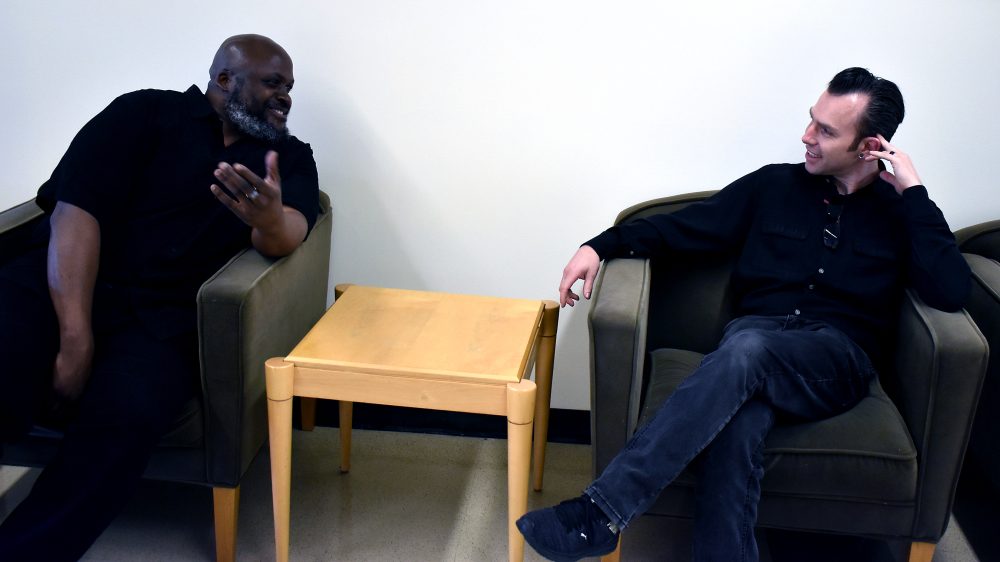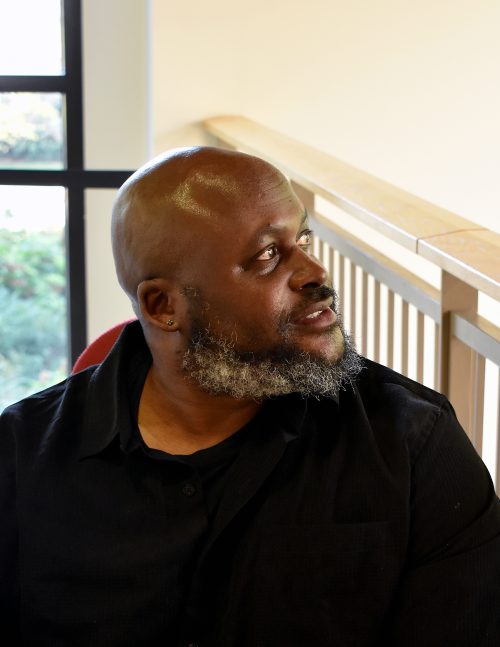This content was published: January 5, 2023. Phone numbers, email addresses, and other information may have changed.
State grant aims to help PCC diversify alcohol and drug counselor workforce
Photos and Story by Misty Bouse
Last year, Portland Community College’s Addiction Counseling Program received a grant from CareOregon for $478,134 to further diversify the addiction counseling workforce by offering full scholarship support to the Black, Indigenous, and People of Color (BIPOC) community.
This renewal builds on the success of past grants, funding a new winter cohort at PCC of at least 15 nontraditional students who want to earn job-ready alcohol and drug (AD) counselor registration within as few as five terms.
“We really want a diverse workforce and have woven-in support,” said Shawn Forde, addiction counseling grant coordinator and advisor. “We are inclusive of everyone, prioritizing melanated and differently cultured people.”
The previous CareOregon grant served students from marginalized communities, most of whom persisted in the program through the pandemic to earn AD counselor certificates. The program is on track to have nearly 100% of its current students complete the education requirements for state certification. Similarly, this new grant funding will be used for full-tuition scholarships and non-tuition student support, such as mentoring, translation services, transportation and career counseling to remove barriers.
“This effort has been needed for a long time as there’s a public health crisis with fentanyl, opioids, and meth – they’re huge issues,” said Kristopher Chew, faculty chair for addiction counseling. “Oregon has the highest prevalence and lowest access to quality addiction treatment services and mental health care. The good news is the world is waking up to this need and hospitals and the medical community are folding in addictions counseling.
“The people we serve need to be aligned with those they serve,” he added. “There’s a real need for culturally responsive treatment centers.”
Chew said PCC is focused on supporting marginalized populations to enter careers in addiction recovery and treatment services now. Specifically, the scholarships prioritize BIPOC students who are African American, Asian, Hispanic or Latinx, Native American or Alaskan Native, Pacific Islander, or Middle Eastern. Next, preference is given to those underrepresented in the field such as first-generation college students, LGBTQ, and veterans as well as those who speak sought-after languages like Spanish or Filipino.
AD classes are planned as hybrid – in-person at the Cascade Campus and remote – to best serve students. The cohort is encouraged to complete a minimum of five terms to receive their AD counselor registrant status (having met all prerequisites) and continue towards their certificate.
To learn more about opportunities to secure grants and scholarships, visit the program’s webpage.
To apply for classes, visit the Addiction Counseling Program application site, or apply to PCC to register for classes at https://www.pcc.edu/enroll/


